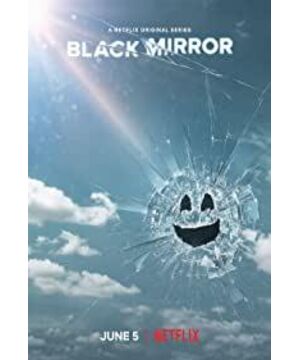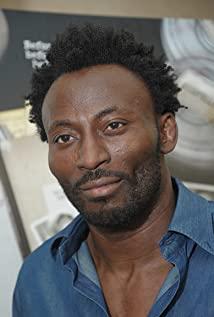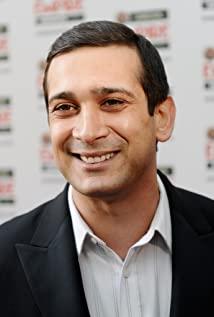"Science" and "technology", as the two key words of science fiction, often appear together. Technology is often considered a specific form of science. In the dictionary, technology is "the practice, description, and terminology of applied science with practical value and industrial use." Expansion, and standards-through it, truth is tested.” The latter obviously emphasizes the emphasis on “truth”, “knowledge” and “order”. “Science” is to some extent a restrictive idealist philosophical framework. , Is restricted by "external" things.
Technology is the discourse of tools and machines. From a conceptual perspective, it is not difficult to find that tools and machines are at the core of most science fiction. The dependence of science fiction on technology is obvious. Although machines and tools can achieve amazing results in the aesthetic framework of science fiction texts, there is a prejudice against technology in science fiction. "The novelty of ideas" has traditionally been put on top of the novelty of tools. Just like realist texts are placed above science fiction in the literary world. However, since the 20th century, the development of discourse in philosophical terms has allowed us to challenge this prejudice.
Heidegger traced the word "technology" back to the origin of the ancient Greek etymology, thinking that in ancient Greece before Plato, the word techne was connected with episteme, but after Plato and Aristotle, these two words began to have Up the boundaries. Episteme means "knowledge" in ancient Greek, which means "science" by extension, while techne means "specific technology or ability". Plato and Aristotle reserved episteme for their own philosophy, and discarded techne, believing that it is a ruse of the wise men, rhetoric rather than truth. They accused the wise men of using "logos" as a rhetoric and speech method and being instrumentalized. Logos became a tool of power and knowledge was abandoned. In the inheritance of this conflict, the episteme of philosophy is characterized as the opposite of techne, and the value of technical knowledge is underestimated.
Heidegger's theory actually overturns this understanding of "technology". In Heidegger's view, technology is not a tool, but a cognitive model, a way of unmasking, in which truth occurs. Heidegger believes that technology is not just a "scientific practice", science is actually a function of technology, and technology is not just the application of science. It is not that the existing theory has its practical application, but that science is the performance of the technical standpoint towards the entity. It is technology that "frames" the world in a certain way, facilitating and shaping the way we perceive the world around us. Heidegger distinguishes between the existence of human beings and the existence of objects classified only according to purpose. Technology not only penetrates into every aspect of human life, but the object gradually evolves from inanimate tools to thinking machines and self-conscious objects. In such an era, the depreciation of "technical objects" is becoming more and more untenable. .
The demonization of technology is a long-standing aesthetic strategy in science fiction. The reflection, criticism, and worry about machines and technology have never stopped from the golden age to the present, from Asimov to The Matrix. In many cases, this performance is due to the tendency of science fiction to be biased against technology. Machines and technology are considered to be essentially not as real as organic life forms, because they fall within the scope of “techne” rather than “truth”. This rhetoric dominates the depreciation of technology.
Going back to the movie "Black Mirror", there are actually many questions after watching it. The criticism of technology in the third "All Your History" is the most obvious, but its criticism is also the most untenable in these three episodes. By presupposing many conditions, what is actually achieved is the reappearance of the above-mentioned prejudices-technology is not as real as organic life forms in nature, and we should reflect on it and criticize or even abandon it when necessary.
However, according to the preset conditions in the film, it should be classified as a moral issue to a greater extent—personal privacy, mutual loyalty constraints between husband and wife in marriage. However, the film tends to attribute these problems to advanced technology, which is biased. In the film, the husband is portrayed as a very suspicious person (it is not stated that he is born or influenced by technology), and there is less and less passion in marriage (the film has a strong tendency to attribute this problem to technology) , And finally through advanced technology-memory chip, step by step found that his wife was unfaithful to him. After a series of conflicts, the protagonist's wife left him, and the protagonist finally took out the memory chip.
There is a problem here. The film criticizes technology. Should technology be responsible for the final situation of the protagonist? Could it be said that without this kind of memory chip, the protagonist would not find that his wife cheated on him, so the problems and contradictions would not exist? Or, if there is no such technology, the protagonist’s wife would not cheat? Obviously not. The issue of marriage loyalty is also a big issue in our real life, but we attribute it to morality and ethics. The film blames this problem to a large extent on advanced technology. People who are better and more able to enjoy life will not rely on this technology. behavior).
The film’s critical tendency is so strong that it even restricts other conditions. Assuming a situation to criticize it, the prejudice is quite serious. We might as well reflect that if such technology does appear, then people's morality and ethics should also change accordingly (the role of the Internet in our view of changes in issues); society should also have relevant laws Laws and regulations impose related restrictions on the behavior of "snooping on people's memory" (wildly snooping on people's memory is not a technical issue, but also a moral and ethical issue, and it should be attributed to the imperfections of relevant systems and laws and regulations); Not to mention the other revolutionary leaps that this technology will bring, such as the storage and utilization of information, which will transform the world in all directions (except for the emergence of this technology in the film, other aspects are in line with our current society. No difference). As mentioned earlier, technology frames the world in a certain way and facilitates the way we understand the world around us. It is a cognitive model and a way of unmasking. Isolate all other conditions and conditions, criticize an emerging technology under preset realistic conditions, and push ethical and moral issues to the body. This untenable criticism itself is also worth thinking about.
View more about Black Mirror reviews











